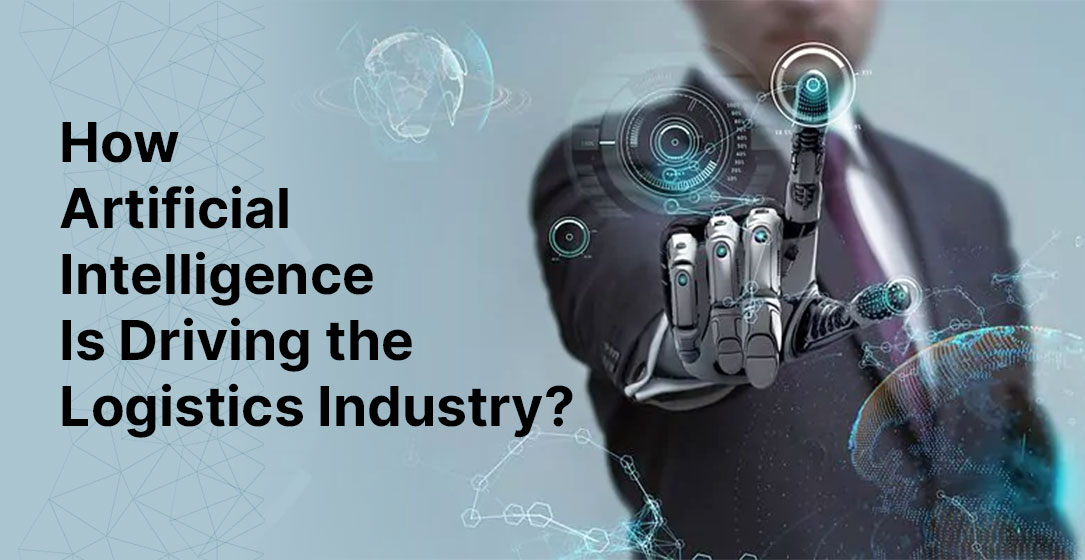May 26, 2023 | SNAK Consultancy
Share on :
How AI Is Driving the Next Phase of Growth in Logistics Industry?

Today we find ourselves in another transformational era in human history where Artificial Intelligence (AI) plays an increasingly central role in this transformation. AI stands to greatly benefit all industries and is prevalent in consumer-facing applications, clerical enterprise functions, online and offline retail, autonomous mobility, and intelligent manufacturing. AI in logistics plays an important role and beginning its journey to become an AI-driven industry.
We hope you will find this an insightful read, and we walk you through as How can AI be used in logistics to reinvent back office, operational, and customer-facing activities?
Well, let’s discuss the reason for why Logistics companies are facing an era of unprecedented change is that as New technologies are enabling greater efficiency and more collaborative operating models. It is the best time for the logistics industry to embrace AI because digitization takes hold and customer expectations evolve.
AI can help the logistics industry to redefine today’s behaviors and practices, planning from forecast to prediction and services from standardized to personalized. It also offers logistics companies the ability to optimize network orchestration to degrees of efficiency that cannot be achieved with human thinking alone
Here are few things you should know about Artificial Intelligence and its Role in Logistics?
Artificial Intelligence (AI) has a growing presence in our personal lives and is rapidly being applied by businesses to increase efficiency and create new value. Many logistics companies around the world embrace digital transformation, transitioning away from legacy enterprise resource planning systems to advanced analytics, increased automation, and hardware and software robotics, and mobile computing.
CRM primary goal is to differentiate a company’s services to the customer through personalization. Let’s parse through a few of the modern advantages of CRM.
With the help of AI, the logistics industry can shift its in operation from reactive actions to a proactive and predictive paradigm, which can generate higher insights at favorable costs in the back office, operational and customer-facing activities. For instance, AI technologies will use advanced image recognition to trace the condition of shipments and assets, bring end-to-end autonomy to transportation, or predict fluctuations in world cargo volumes before they occur.
More and more companies are adding artificial intelligence (AI) to their supply chain With the growing digitization of the professional world, in order to maximize their resources by reducing the time and money spent on deciding and when to send a package to a certain place.
Optimizing Inventory
Inventory Optimization means maintaining a particular level of inventory that may eliminate the out-of-stock situation and at the same time the cost of carrying inventory is not harmful to the bottom-line. Logistics plays a significant role as to scale back value of the product without reducing the material cost or process cost. The technology can also secure and manage the supplier inventory and the number of trucks that are available for delivery and Optimized logistics model. It becomes successful if it satisfies the Demand & supply equation.
Making brokerage processes easy
Customs declarations rely heavily on manual processes that involve knowledge of regulations, industries and customers. Cross referencing and validation are an effort-intensive process. Natural language process will modify and enable an AI software to extract relevant information from documents in various formats and present a declaration.
Tackling Unforeseen Circumstances
AI can be trained to learn from contingency plans that can guarantee corrective action in the future in and Using AI to scour the internet to observe trends can predict any increase in the demand of a certain category of products or to identify any risk way ahead in time.
Expect the unexpected when it comes to the logistical business as a series of circumstances could affect the expected delivery date of a product. Natural disasters such as hurricanes and floods, carrier bankruptcies and employee strikes can all affect the natural course of a company’s logistical workflow
End Notes
The world of logistics and the supply chain is a complicated one that requires a lot of planning, and have a huge impact on customer loyalty, resilience and ability to adjust when unforeseen circumstances happen. companies are able of automating logistical work processes and alternate routes for vehicles derailed by bad weather or other. With the right AI system in place that leverages machine learning and predictive analytics to make operations efficient.